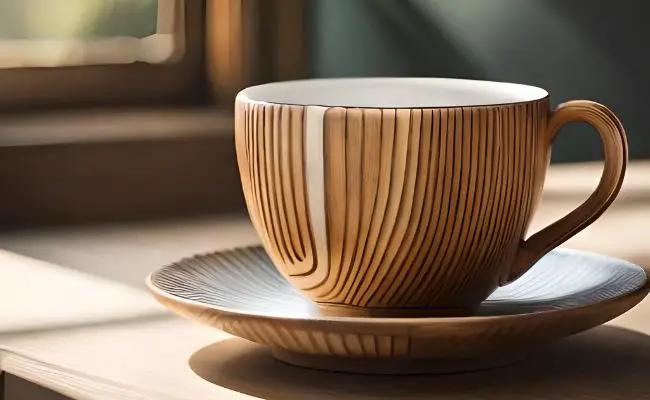Wooden tea cups have a unique charm and rustic appeal that attracts many tea enthusiasts. However, when it comes to safety, there are a few factors to consider. In this article, we will explore the safety aspects of wooden tea cups, their potential risks, and how to ensure a safe and enjoyable tea-drinking experience.
The Porosity Factor: Why Glass Cups are Considered Safer
Wood, as a natural material, can be semi-porous and harbor moisture, which creates an environment conducive to the growth of harmful bacteria. This is where glass drinking cups have an advantage, as they are non-porous and easier to clean thoroughly. The porosity of wood can pose a risk if not properly addressed, making it essential to take appropriate precautions with wooden tea cups.
Resin Coating for Protection
One method of making wooden tea cups safer is to apply a resin coating to the cup’s interior. The resin creates a protective barrier that helps prevent interaction between the wood and the drink. However, it’s crucial to ensure that the resin used is FDA food-safe and has a suitable temperature tolerance. This will ensure that no harmful substances from the resin leach into the hot tea.
Safe Usage in Moderation
While wooden cups can be safe to use, it’s important to note that they are not typically dishwasher or microwave safe. Exposing wooden cups to high temperatures or excessive moisture can lead to damage or deterioration of the wood. Therefore, it is advisable to hand wash wooden tea cups with mild detergent and lukewarm water, followed by thorough drying. Additionally, avoid leaving tea or any other liquid in the cup for extended periods, as this can also compromise its safety.
Ensuring a Food-Safe Purchase
When purchasing wooden kitchenware, including tea cups, it’s essential to pay attention to certain aspects to ensure their safety:
- Check if the wooden cup has been sealed with a natural and/or food-safe oil. This sealing helps protect the wood from moisture and reduces the risk of bacterial growth.
- Opt for closed-grain hardwoods such as oak, beech, and walnut. These types of wood have a tighter structure, making them less porous and more suitable for food-related items.
- Avoid cups made from exotic or unknown woods, as they may have different properties that could impact safety.
- Look for finishes that are considered food safe, such as pure tung oil, beeswax, carnauba wax, raw linseed oil, mineral oil, walnut oil, or shellac. Alternatively, leaving the wooden cup untreated can also be an option, especially if it is only used for decorative purposes.
Advantages of Wooden Cups
Despite the considerations for safety, wooden tea cups offer some advantages that make them appealing to many tea lovers:
- Antibacterial properties: Some types of wood, like teak and cedar, possess natural antibacterial properties. This can help inhibit the growth of bacteria and make wooden tea cups a potentially hygienic choice.
- Reduced risk of burning lips: Unlike metal or ceramic cups, wood is a natural insulator and does not transfer heat as readily. This can reduce the risk of burning your lips while enjoying a hot cup of tea.
Conclusion
In conclusion, wooden tea cups can be safe to use if certain precautions are taken. Glass cups are generally considered safer due to their non-porous nature, but with proper care and maintenance, wooden cups can also offer an enjoyable tea-drinking experience. Remember to choose cups made from suitable woods, check for a food-safe sealant or finish, and handle them with care to avoid damage. By following these guidelines, tea enthusiasts can savor the unique aesthetic and warmth that wooden tea cups bring to their tea rituals, all while prioritizing safety.

